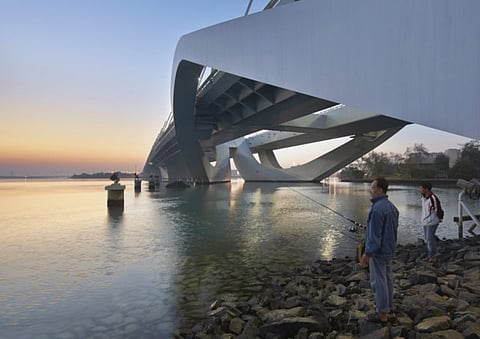What’s Abu Dhabi’s personality?
Experts say every city has a personality. The UAE’s capital claims a friendly demeanour with an assertive cultural character. Make friends with it

“One of our guests was in the city and asked an Emirati family for directions to Falcon Hospital. Not only did he get the directions but the gentleman invited him over, showed off his horses and treated him to tea. He came back and told us that he was fed some of the richest stories he has heard,” she says.
Personality type
More than any other megacity in the region, Abu Dhabi comes across as warm and friendly, for those who take the trouble. If cities have personalities, making them compatible with people who share their traits, the Abu Dhabi persona is one of quiet power and warmth, not quite eager, but generous, once contact is established. If it were a sibling, Abu Dhabi would be the elder brother, setting the rules in the family compound, even as it acted as the wind beneath the wings of other family members wanting to soar. To outsiders, it shows off its cordiality and a well-appointed majlis.
What makes a city what it is? US-based urban studies theorist Richard Florida wrote the book Who’s Your City on the topic, in which he classifies cities into five personality types, similar to the psychological classification of individuals — one could be more open to experience; conscientious and responsible; an extrovert, seeking enjoyment; agreeable and trusting; and neurotic, given to impulsive decisions. Like individuals, it is not difficult to apply these personality types to cities such as Abu Dhabi.
Catalin Cighi, Managing Partner at Cain Hospitality Innovation, who authored the thesis Senses of Place looking at, among other things, spatial, temporal and social dimensions of places, says the way our environment was built controls how we interact with strangers.
What’s in a boundary?
However, there may still be boundaries. As a fundamental element, Cighi says all cities — from the earliest to the most modern — have boundaries, just as they have a way of being organised on a grid and the idea of an axis, which makes some streets more important than others.
Boundaries, in the sense of defining elements, can also be cultural or linguistic rather than physical. Recently, as part of the Onwani project to standardise the capital’s address system, street names in the emirate have been undergoing a transformation.
The municipality has selected new names as a tribute to Emirati leaders and to acknowledge geographical significance.
Highway to the city
Under the new project, the main highway into the capital, which brings you into the city after crossing the spectacular Shaikh Zayed Bridge, designed by renowned architect Zaha Hadid, is now called Shaikh Zayed Bin Sultan Street. This important road is named after the ruler of Abu Dhabi from 1966 to 2004 and the first president of the UAE, one of the most beloved figures in the emirate and the country. Similarly, the newly renamed Al Bateen Street, which houses the InterContinental Abu Dhabi, is named after a fishing village and boat building community with the same name.
Cighi says names are an important part of a city that wants to tell its own story. “You take an essential element of the city and recognise it as important. In the meaning associated with the name, you have elements related to people, culture, history and place, and you pick and choose the elements that help you tell a story. It is a tool for building a society, a culture and an identity, not just with one person at a time but for a group of people.”
This is a particularly good time to engage with Abu Dhabi since it is now ready to tell its story to the world; to an audience outside desert camps. And the world is eager to hear it.
Lest We Forget, Structures of Memory in the UAE, a project that began at Zayed University in Abu Dhabi, is going to be part of this year’s Architecture Biennale in Venice. The student project, which began four years ago as a photographic record of old times, will be used to highlight elements of architecture and memories associated with buildings in the 1970s and the 1980s.
David Howarth, Assistant Professor at the College of Arts and Creative Enterprises at Zayed University, tells GN Focus the project may have relit the hunger for identity and what it means in today’s society. “Through the photographs there is a strong sense of family and community. There are many examples of this [sentiment in the pictures of] celebrations and family gatherings in the desert.
“Emiratis are a proud people with a strong connection to their past, through their heritage and culture. With things moving so quickly in today’s world, it is very easy to lose sight of the past and this project goes a long way in helping the younger generation reconnect with some of the city’s values and traditions. It has opened up a dialogue where the younger generation has a hunger for the past through stories told by their parents and grandparents.”
So, talk to Abu Dhabi. You may make a new friend.



